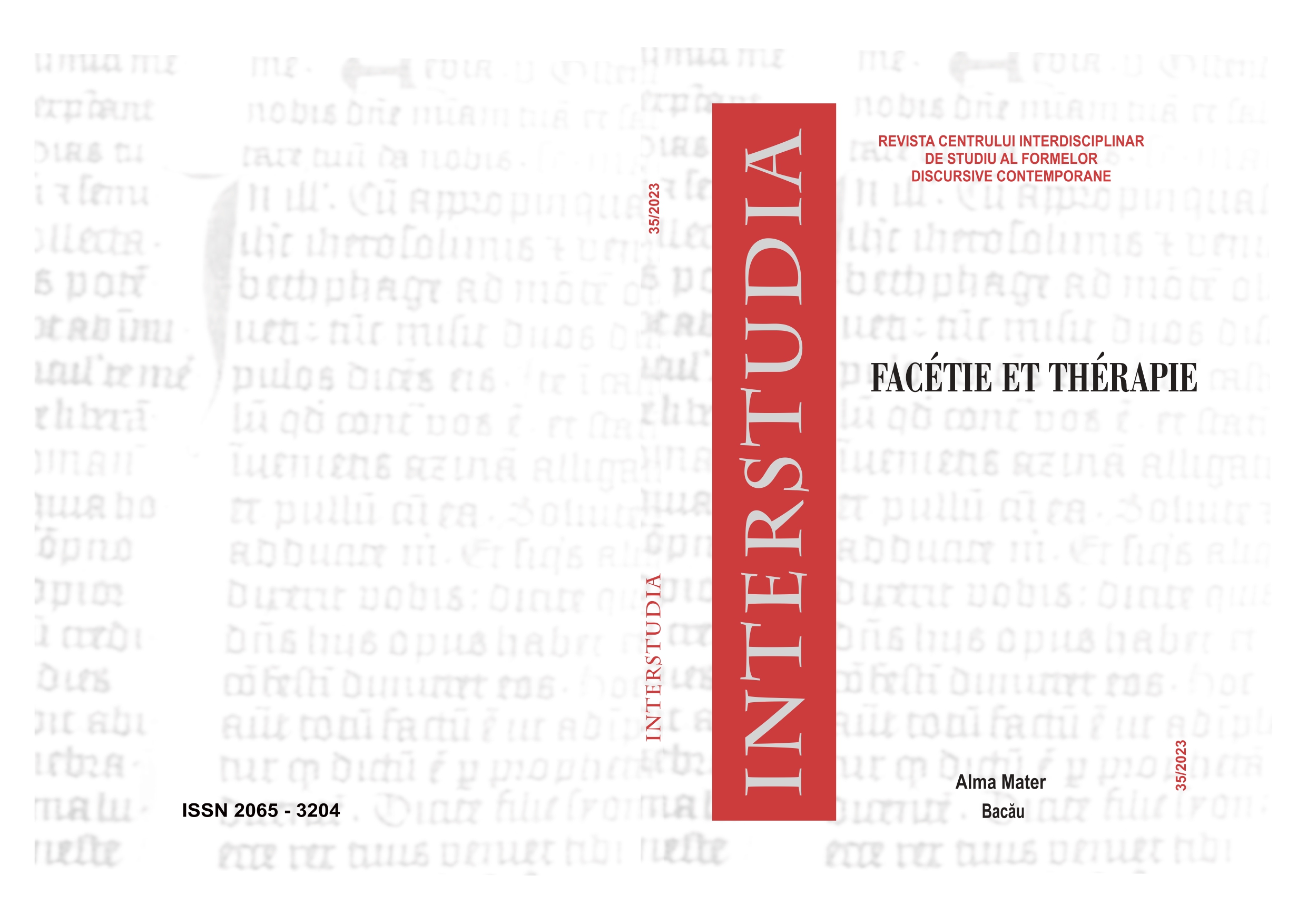GUÉRIR LE MAL D’AIMER PAR LE RIRE DANS LES TRAITÉS MÉDICO-MORAUX DE L’ÈRE BAROQUE: HILARITÉ PURGATIVE, ANTIDOTE ANECDOTIQUE, RIS PHILOSOPHIQUE
CURE THE PAIN OF LOVING THROUGH LAUGHTER IN THE MEDICO-MORAL TREATISES OF THE BAROQUE ERA: PURGATIVE HILARITY, ANECDOTAL ANTIDOTE, PHILOSOPHICAL RISING
Author(s): Alexandra GORICHON-HERRENSubject(s): Social Sciences, Psychology, Social psychology and group interaction, Experimental Pschology, Personality Psychology, Behaviorism
Published by: Editura Alma Mater
Keywords: healing laughter; lovesickness; purge; performative narration; irony;
Summary/Abstract: In early modern medical treatises, both laughter and tears are responses to lovesickness. These strong emotional reactions are conceptualized as a cathartic therapy, especially laughter. In spite of its power of seduction and its representation as devil’s tricks, laughter proves its therapeutic efficacy. Healing laughter appeases and puts insane love in perspective. It purges body and soul by eliminating the bad humors. Therapeutic laughter is based on therapeutic coitus. This therapy evacuates the retained seed in danger of becoming suffocating vapors impacting the brain. With this mind, laughter, located in the lower abdomen by ancient medicine, increases the body temperature and shakes the entire body to purify the blood. Such somatic tremor finds its metaphorical extension in the performativity of narration. Because of its dramaturgy, the anecdote becomes a cathartic for the soul. It allows for unusual stories and the sensation of strong emotion that frees the mind from sex drives. So, the anecdote is an antidote. It gives the result that medical speech, artefact of practicing ataraxia, uses irony in order to be wiser.
- Issue Year: 2023
- Issue No: 35
- Page Range: 41-56
- Page Count: 16
- Language: French
- Content File-PDF

